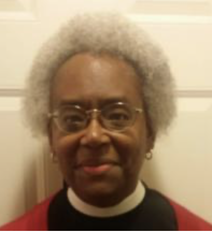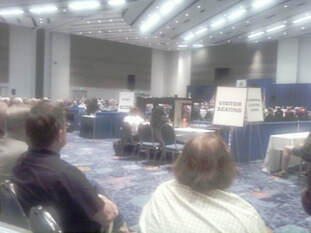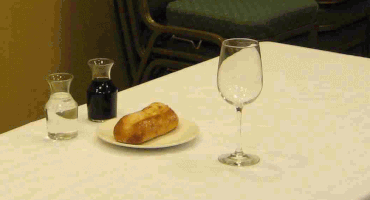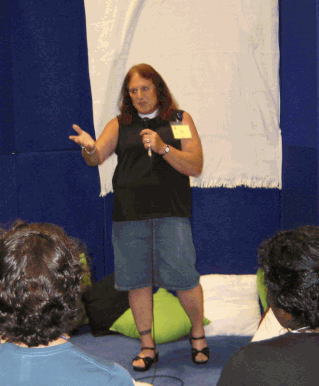I moved to this area from another state that has shifted radically red since 2016. I’ve spent the majority of my life in these areas. I have learned the art of finding your people and sharing your voice. I took a job in this area because it wasn’t any worse than where I came from. I enjoy the small town atmosphere and the quality healthcare found a couple hours away in our neighboring state.
There’s also a small university here and my job came with campus ministry duties. Having a university in town is a major perk for trans people in conservative states. Even here, where the local state senator and state representative eagerly voted for restrictions on healthcare for trans youth, you can go to the university and find all sorts of young adults with pronoun buttons, a small but mighty Pride center, and professors from across the United States and the world who have experience with trans people. There are more queer people of all ages here because of the university buffer. The university is a happy space to go when the opinion page of the local newspaper equates trans people with pedophiles and feeds people the idea that we’re all just a bunch of woke sexual perverts. Young adults give me hope for this country.
Even then, the university isn’t perfect. My wife, a trans woman, came out about six months after we moved here and just started hormones not that long ago. She is trying to navigate bathrooms. We recently went to a musical at the university. She needed to pee, but didn’t because she saw a university official eyeing her as she walked towards the lady’s room. The closest gender neutral restroom on campus was in a locked building several blocks away, so she just held it and cried afterwards. We travel two hours each way for our healthcare and there are no safe restrooms for her between home and the larger city. We worry about her getting harassed or interrogated by police for using the women’s room. She holds it a lot and we worry about UTIs.
All the recent attacks on trans people on a legislative level have made things very hard. The decision of Missouri’s Attorney General to restrict trans adults from gender affirming care has us shaking in our boots. We can see how that kind of restriction would be appealing to the legislative and executive branches in our area. There is a race for governor happening, and one of the primary candidates, who was not elected, openly said that they don’t want trans people in their state. What they don’t seem to realize is that there are already trans people in their state, even the smaller communities. I walked into a church where I was the fourth openly trans person they had as part of the congregation. I know local parents who are trying to figure out what to do because right before the legislature banned gender affirming healthcare for minors, their sixteen year old had started hormones and was the happiest they had ever seen him.
My wife and I can’t make plans that involve settling down here because we don’t know what the government will do and how that will affect our family. Who will be the governor? What might the legislature do? What happened in Missouri is very possible here and it scares us. I want to live within a certain driving distance of my parents, but there are so many limited options. Do I potentially give up full time parish ministry to live in a state that is enacting trans protections but has a tiny Episcopal presence? Do we move further away from my family and try to establish ourselves in areas of the country I’ve never even visited? Do we stay where we are and take the risks?
What if the whole United States gets worse? Where is our safe space then? We talk about Canada as a place that would take my orders, but the truth is I don’t want to live there. I want to live close to my family. We want to live in peace, with access to care for our medical needs. But legislation makes it hard. We are tied to following the news in different ways than the majority of cis people. We’re waiting for the sign that it’s time to flee. Some of our friends from Florida have already done so. We don’t know if it will be our turn soon.
But I also live in hope that things can and will get better. Maybe not soon, but I don’t think this discrimination will last once younger people take office. Even if our government doesn’t improve, I still believe that every day is a gift. My wife and I both agree that living our true selves is worth it, even if persecution comes soon. We live as witnesses to youth that they are not alone. I’ve had several conversations with young adults who think they are trans. I’ve seen the joy on their faces when I tell them that it’s okay and that they can take one day at a time. And living with someone who is removing the mask they’ve held onto for so long, seeing my wife smile and dance in her new flowy skirts? It’s all worth it. We will live our lives in authenticity, no matter what the government does. Even in the midst of struggle, there is great joy. I’ve learned to hold onto the joy in the midst of persecution because that’s part of our Christian tradition. Biblical witnesses and saints help me live out even the toughest days. Even if we are crucified, yet shall we live.





 RSS Feed
RSS Feed